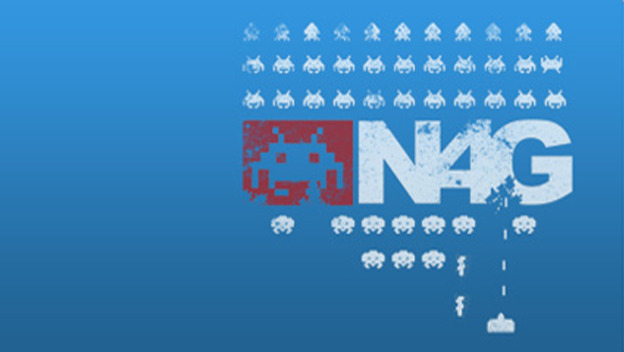So, you want to write in the gaming industry? You’re not the only one. Gamers the world over have similar dreams of breaking into the industry of their favorite pastime, but it’s not easy. After all, if it were easy, everyone would be doing it. However, there are some tools that can be used to help you weasel your way into your dream career. Check out these tips, tricks, and tools on how to bust your way into the field of gaming journalism.
WordPress

One of the best ways to get started in games writing is by starting a blog. To that end, WordPress is the gold standard. In fact, a lot of respectable outlets use WordPress as their backend. WordPress allows for flexible customization, multiple users and editors, and features a wealth of user submitted plug-ins to assist with your weak spots so bloggers can focus more fully on their writing. It won’t matter that you don’t know anything about SEO as you work towards building a readership and a solid portfolio, and that’s what makes WordPress an invaluable tool for beginners.
N4G

Once you’ve started writing, chances are, you’re going to want to get some eyes on your hard work. That’s where N4G comes into play. N4G is a news site that allows users to submit stories which will then gain popularity based on an algorithm that accounts for views, comments, and other magical metrics that I’m not quite aware of. Once a story attains a temperature of 50 degrees, it will be featured on the front page where it will continue to grow in popularity. It’s a great way for fledgling writers to get started. Hell, we even use it here at CheatCC.
Dark Room

Dark Room is an underutilized but incredibly efficient writing resource, especially if you are having trouble getting your story down. Dark Room is a simple, distraction-free writing environment that helps filter out the many happenings of a pc. Dark Room renders your laptop, temporarily, into a black and green screen slightly reminiscent of the computers in Fallout . And once your computer is not much more than a typewriter, you can get your story down. It is recommended that you copy and paste the text from Dark Room into a word document later for editing, since the software itself doesn’t have any grammar or spelling tools. It really is barebones. For pre-writing, Dark Room is an unrivaled bit of writing software.
Gamespress

Gamespress is one of the easiest ways to get started in Games Writing once you’ve acquired your own domain name. There are forums on site where users can talk to one another about the various ins and outs of game’s journalism, a full list of Press Contacts for getting ahold of publishers for precious review copies and interviews, and an email list that will keep you up to date on all the various happenings in video games. And if you’re quick, you can use those press releases to write up news posts that nobody has published yet. Then, simply submit to N4G and watch the traffic come rolling in.
Domain Name

This is important. Most contacts won’t want to talk to you without your own, unique email. This can get tricky for freelancers, but as a general rule of thumb, the best way to get noticed in someone else’s inbox is to have a personal email at your very own site. Pick something that is interesting and easy to remember so that users who like your content are likely to come back and visit your site again and again.
Neogaf

The ultimate gaming forum. At Neogaf, users talk about their insights into the state of games writing and the industry in general. It isn’t always friendly but if you’re looking to get a pulse on the general state of affairs, or just want to engage in debate or test your thesis, Neogaf is an invaluable resource. Patrolling their forums can be a great way to generate ideas for opinion pieces or news pieces. Chances are, if you feel strongly about an issue, or if a particular thread is getting a lot of buzz, then you’ve found a story worth writing about.

We all have various opinions on the value of social media. When it comes to writing about games, Twitter is a blessing and a curse. On one hand, the distraction and drama factor are out of this world. On the other, Twitter is a great tool for building a readership, meeting interesting people, talking first hand with indie developers, and finding stories that other writers may have overlooked. Users can also build lists that allow them easy access to the kind of information they are looking for. Try compiling a list of indie devs, big publishers, and personalities so you can filter through the insanity to find the kind of buzz that interests you that day. Oh, and make sure to follow Hideo Kojima, Cliff Bleszinski, and David Jaffe; their tweets tend to be gold.
F.lux

If you’re going to be writing as much as you should be and playing the amount of video games required for keeping up with this field, then you run the risk of consistent, unbelievable headaches. And no, I’m not referring to dealing with unruly comments, though that is certainly part of the job description. Computer monitors are hell on the eyes. Glare is frustrating when you’re trying to review a game during the oppressive sun time hours. That’s where F.lux comes into play. F.lux is the unburdened equivalent to wearing Gunnar glasses, and changes the color scheme and brightness of your monitor to optimal settings according to time of day.
Free Time

It’s a lot of fun writing about games. You get to talk to some of the most interesting people you’ve ever met, and the opportunity to critically analyze games is unrivaled. It’s also a huge time sink, and requires dedication that a lot of writers don’t consider when they first get into the field. If you want to write quality pieces, you’re going to need time. You’re going to need to pre-write, outline, take notes and revise. You’re going to need down time to think of angles and ideas, and you’re going to need time to talk to your readers, PR representatives, and developers. I’m not saying quit your day job, but if you want to get your content into the hands of others, it’s going to take a lot of work.
Lists

Every writer has their own opinion on lists. Sometimes they are considered hack work. Other times, they’re considered essential. From where I sit, lists are one of the best ways to expose your readers to content they may have otherwise overlooked. They also drive traffic like crazy, which some consider easy . But if you can swallow your pride and construct a carefully considered list, I can promise you that you will see a discussion open up on your website. It’s an ideal opportunity to interact with your readers. Just don’t rely on them. Find a nice balance and you’ll be golden.
